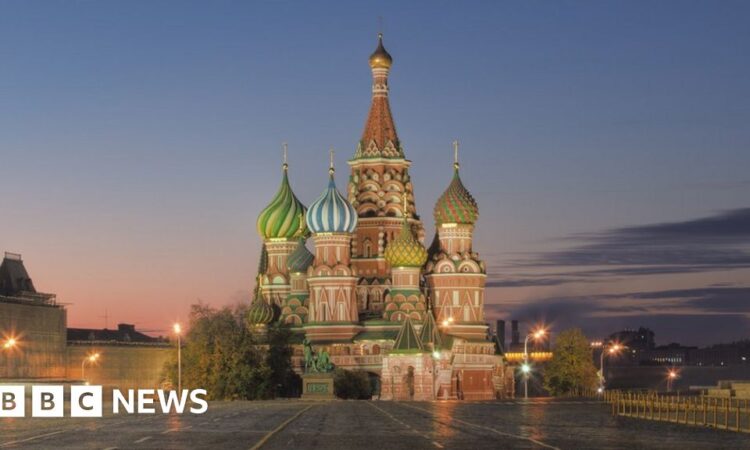
Image source, Getty Images
The US, UK and EU have announced new sanctions on Russia, two years after its invasion of Ukraine.
The measures also marked a week since the death in custody of opposition leader Alexei Navalny.
What are sanctions?
Sanctions are penalties imposed by one country on another, to stop them acting aggressively or breaking international law.
They are among the toughest measures nations can take, short of going to war.
What are the latest sanctions on Russia?
Announcing 500 new sanctions against Russia, US President Joe Biden said they would target Russia’s war machine. Export restrictions will be imposed on nearly 100 firms or individuals.
Image source, Getty Images
The sanctions include companies and individuals involved in shipping North Korean armaments to Russia.
What other sanctions have been imposed on Russia?
Their main target has been Russia’s money.
Western nations have also:
- banned exports of technology Russia might use for making weapons
- banned imports of gold and diamonds from Russia
- banned flights from Russia
- sanctioned oligarchs – the wealthy business people linked with the Kremlin – and impounded their yachts
Roman Abramovich, former owner of Chelsea FC, is one oligarch who has been sanctioned
Russia’s oil industry has been another major target.
The US and UK banned Russian oil and natural gas. The EU has banned seaborne crude imports.
Which Western companies have left Russia?
However, some still do business in Russia.
How has Russia evaded sanctions?
China has been a vital supplier of alternative hi-tech products to those produced in the West, says Dr Maria Snegovaya from the US think tank, the Center for Strategic and International Studies.
“China sells it chips and other components it needs to for keep its military production going,” she says. “Russia wouldn’t be able to pull that off without China’s help.”
What impact have sanctions had on Russia’s economy?
In 2022, the first year of the war, Russia’s economy shrank by 2.1%, according to the International Monetary Fund.
However, it estimates that Russia’s economy grew by 2.2% in 2023 and predicts growth of 1.1% in 2024.
But Dr Snegovaya suggests: “Sanctions have not made waging this war sufficiently costly for Russia, and that means it can continue with it for some time to come”.
The US Treasury also says that the war in Ukraine and sanctions have led more than a million people – many of them young and highly educated – to leave Russia.
“This mainly hits people in rural areas,” says James Nixey of foreign affairs think tank Chatham House. “The government makes cuts there rather than in the major cities, where they might cause uprisings.”






